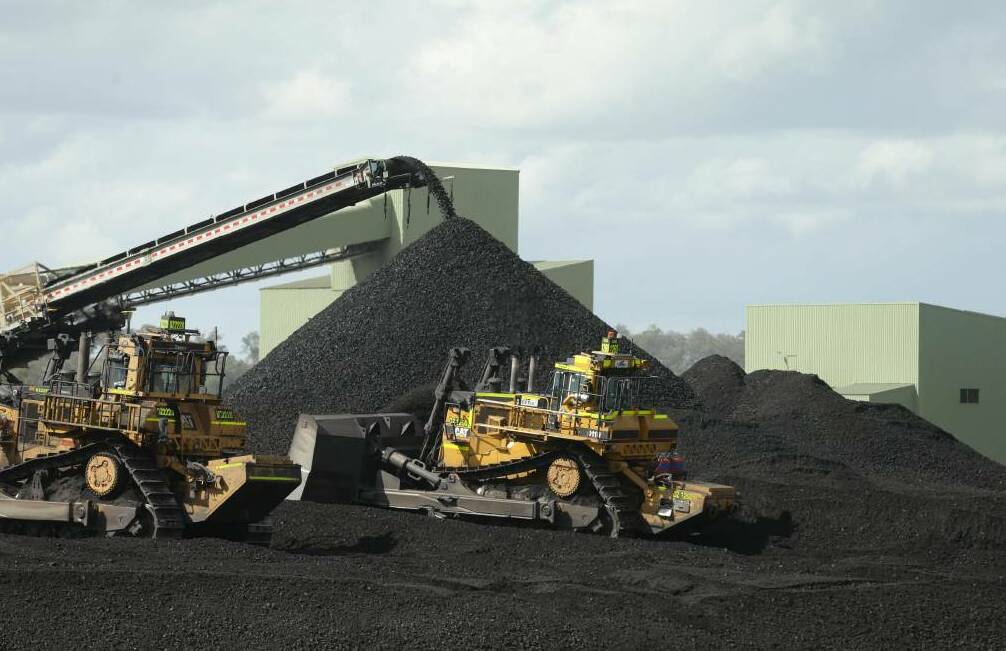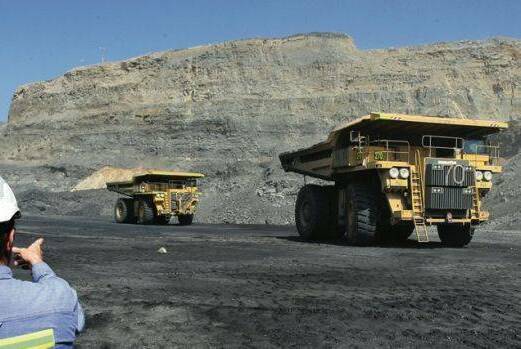EVERY few months, it seems, Professor Penny Sackett, former Chief Scientist for Australia, has more photos to indicate how climate change is affecting NSW, including the most recent flood event.
Climate change has arrived, and it's going to get worse, she says. How much worse depends on decisions that are made today, she has told the Independent Planning Commission (IPC).
The commission is currently considering MACH Energy's application to double the yield of coal at Muswellbrook's Mt Pleasant coal mine and extend its lifespan by 22 years to 2048.
Submissions closed on Wednesday and a decision is expected in the third week of August.
The impact of the amount of coal which MACH proposes to extract would make Australia's carbon reduction emissions targets more difficult to meet, Professor Sackett says.
"If we should possibly reach three degrees or more, which I only mention because that is where world and Australian inaction is taking us now, the NSW run-off water that feeds agriculture and streams will be reduced by 45 to 60 per cent in many areas," she has told the IPC.


"Most world ecosystems will be destroyed or heavily damaged. Large areas of the world will be uninhabitable and the entire global economy will be damaged."
Farmers
Owners of the Hunter's largest remaining dairy farm, immediately adjacent to Mt Pleasant, say they are increasingly bearing the brunt of the coal mine next door, and are questioning the value of the expansion.
"We have been experiencing impacts from the mine since it started in 2017," their submission to the NSW Department of Planning says.
"These include dust, noise and lighting. These impacts have had a very significant negative effect on the lifestyle of the three families who live on the farm .. and on the operation of the farm.
"The dust has been relentless. Its presence make our workplace, home and work life significantly less pleasant overall and, on some occasions, seemingly unbearable.
"The dust permeates everything in the house and our swimming pool and our drinking water and all our equipment and pastures."
The farm's owners say there has been a decline in productivity since mine operations began, as well as a decline in animal health, reproductive performance, pasture quality, and profitability.
"We are not opposed to the mine per se, just seek that we have the right to require purchase," the submission, categorised as a comment rather than an objection, says. "We are asking for the right and the ability to remove ourselves from these impacts which are not acceptable or fair to expect us to bear."
They have been in discussion with MACH Energy, hoping they would buy them out, since 2019 "but unfortunately those negotiations have not progressed."
Jim and Nell Lonergan, who run a beef cattle and irrigation property also adjacent the mine, say they are "extremely concerned about the massive affect" the expansion would have on their health, as well as the operation and viability of their property and associated businesses.
The impact on water supply - on water levels in their wells which they rely on for domestic and stock water, is a key issue for them.
Mr Lonergan says MACH Energy approached him "some years ago" to see if he would consider selling his land but he was disappointed with an "apparent lack of sincerity" in MACH's dealings with him.
Other issues he has with the proposed expansion include a proposed road realignment and upgrade which they fear will result in "sizeable and dangerous" increases in traffic volumes and speed, making it difficult to move farm equipment, machinery and stock between properties.
The Lonergan family has lived in the area since Mr Lonergan's great grandfather moved there in the 1880s.
"There was a time, when no one in the area thought about mining," he said.
"All the hills in the pre-mining landscape, that we used to think were tall, are now dwarfed by the overburden of Bengalla and Mt Arthur."
Mining impacts every aspect of community, he said, including family life.
"The miners used to be part of the community, they would play sport on the weekends and volunteer but now with the 12 hour shifts and the rosters, the mine workers are separate to the community."
Mr Lonergan said he doesn't know when to call his son, who works on roster at Mangoola coal mine.
"I can't call in the evening because he goes to bed early after spending precious time with his family, and I can't call him during the day because he's not allowed to have his phone on him at work."
Experts
Economic advisor to the Climate Council Nicki Hutley, who specialises in areas including cost-benefit analysis and policy advice specific to climate economics and environmental economics, told the IPC there was a major flaw in the calculations relied upon in the proposal.
"It's my opinion that there's a major flaw in the calculation of the economic costs of the project's greenhouse gas emissions that results in a gross underestimation of the cost of climate impacts, and therefore the net benefits of the project," she said.
"Now, this is in part due to a lack of clarity in the current government guidelines for an appropriate methodology.
"This is an area that is evolving rapidly over time as our understanding of and modelling capabilities for climate economics change."
Dr Gabriel Da Silva told the commission that expanding activities at Mount Pleasant would inevitably result in increased air pollution in the Hunter - more specifically, higher levels of fine particulate matter, known as PM2.5.
"Emerging science (is) telling us that PM2.5 is actually more harmful than we once understood, and it's more harmful than what you would have heard ... in many of the approval processes for the majority of coalmines and coal mining activity that exists in the Hunter," he said.
"So there's information that we have available today that we didn't have even a year or two ago.
The latest studies are showing we can't actually work out where a safe limit for exposure to PM2.5 is," he said.
"There's no known safe exposure level."
Public health expert Dr David Durrheim, director of health protection at Hunter New England Health, reached a similar conclusion in his submission to the planning department.
"There is no evidence of a threshold below which exposure to particulate matter (PM) is not associated with health effects," Dr Durrheim said.
"This mine is located in a region where air quality often exceeds national standards and it is especially important to ensure that this project does not contribute significantly to the air pollution in the area."

.jpg?w=600)





